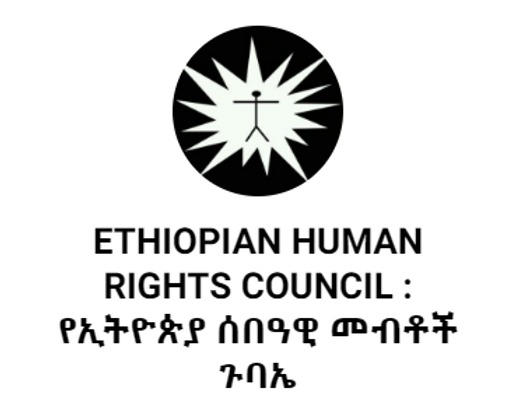Ethiopian Human Rights Defenders Center has called for an end to the harassment & arrest of artists
The Ethiopian Human Rights Council (EHRC) stated that it is facing increasing violence and pressure from the government.
In its announcement, the EHRC declared that the government’s actions have reached a dangerous level, citing numerous incidents of surveillance, threats, and intimidation by government security personnel.
The EHRC reported that security forces have been physically assaulting, insulting, harassing, and threatening their employees who are investigating human rights violations.
Despite being legally registered for the past 32 years, the organization noted that security forces in the Oromia region have been threatening them with arrest and questioning their legitimacy.
The EHRC also highlighted illegal arrests and detentions of their members, particularly in Addis Ababa, without bringing them to court.
Employees and officers of the EHRC have reported being harassed and monitored when returning home from work and international meetings.
The Ethiopian Human Rights Council, established in 1992 as a non-governmental human rights advocacy organization under Charity and Association Proclamation No. 13/2011, emphasized the increasing pressure on their operations.
Meanwhile, the Ethiopian Human Rights Defenders Center (EHRDC) condemned the arrest of artists.
Director-General Yared Hailemeskel stated that art is a form of free expression and should be protected from violence and imprisonment.
He urged the government to provide special protection for artists and their profession, recognizing the importance of artistic expression in conveying public sentiments and concerns.
The organization highlighted the arrest of producers and actors of the stage play “EbedEt Be Hebret” in April 2024 and “Bualetica” in January 2024, which addresses current political, social, and economic issues.
Additionally, art platforms presenting various works, including literature and plays, are being disrupted due to meeting permit requirements.
The center called on the government to respect the right to freedom of expression, as protected by the constitution and international human rights documents adopted by Ethiopia.
It urged the creation of a conducive environment for artists and their work, recognizing the role of art in social, economic, and political development.
The center also demanded the release of arrested artists or the provision of swift justice, as well as the free operation of banned art platforms.
The conflict in the Amhara region began after the federal government decided to “reorganize” the regional special forces a year ago.
The clashes between government security forces and Fano militants led to the declaration of a six-month state of emergency in the Amhara region in August 2023.
This state of emergency has been extended for another four months, with two weeks remaining.
International human rights institutions and Western countries, including the Ethiopian Human Rights Commission, have reported that innocent citizens have been killed by repeated drone attacks in the Amhara region.
The Ethiopian Human Rights Commission reported that four months ago, members of the national defense forces shot and killed more than 45 innocent people in Marawi city.
The United States and the European Union have called for an independent investigation into these killings, but the federal government of Ethiopia has maintained that the defense forces acted in self-defense and stated that the matter would not be investigated independently.
